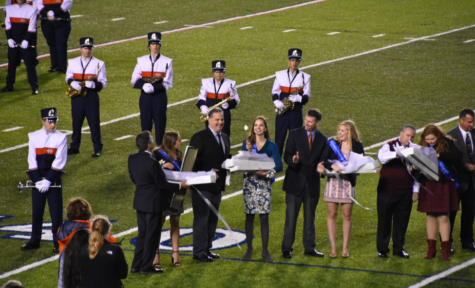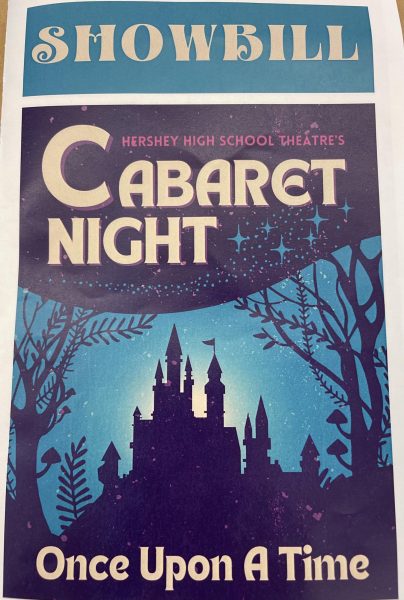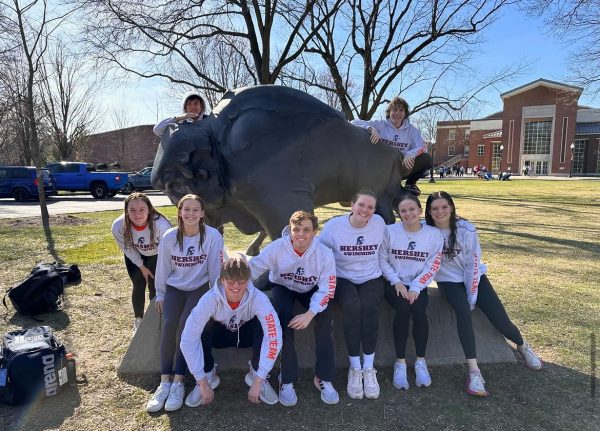HHS Homecoming Court: Chance or Choice?
October 11, 2017
A rose by any other name would smell just as sweet, but perhaps not if it were not up to chance.
For as long as Hershey High School (HHS) can remember, the white rose is one of the most iconic symbols to represent the annual homecoming football game and dance. The lucky nominee to get the box with the white rose will be crowned queen.

It is a question each year: are the king and queen truly chosen truly at random? Some suggest there may not be much chance involved and some individual or group is skewing the results to favor certain individuals.
Homecoming advisor, Mrs. Barbara Clouser, said that the process has been the same for the last 30 years at HHS. The random choosing of the king and queen overall avoids the popularity aspect for selection of final court nominees according to Clouser.
“Choosing randomly is better compared to voting because there isn’t a matter of votes and nobody can complain that the votes weren’t counted right or assume there was someone rigging the process,” said Clouser.
In the past, Clouser said the female nominees would pick their chosen box from an HHS Hall of Fame inductee. For this year, the athletic department will have the nominees chose a box from an HHS faculty member.
Homecoming King nominee, Michael Abruzzo, said randomly choosing our homecoming king and queen is what helps avoid stereotypes at HHS. Abruzzo, basketball player and Senior class president, also said the “competition” to become king or queen never exists among the nominees.
“Any time you actually vote, you typically get people saying it’s a popularity contest,” said Abruzzo, “but at Hershey with having the king and queen being chosen randomly, no one can really complain because no students got to choose. I think that’s fair to everyone on court.”
Bella D’Addario, a senior nominee for homecoming queen, said, “I think it [being randomly chosen] is fair because this way everyone has an equal chance of being king or queen rather than for other reasons like popularity.”
Being a member of student council, part of The Broadcaster, Key Club, and a cheerleader for the Trojans’ football team, D’Addario said she feels honored to be nominated with the six other nominees.
“I definitely do not see it as competition,” said D’Addario, “I feel honored enough to be on court and I certainly don’t think any of the other nominations feel the need to compete with each other.”
D’Addario will be taking the field with the other female nominees during halftime of the homecoming football game, as the Hershey Trojans play Red Land.
The process HHS uses the same method for selecting the homecoming king and queen every year.
The process starts with a survey for every student in the junior class. As those students go into their final year of high school, they must vote for two students in their class to be nominated for homecoming king and queen in October.
After those nominees are chosen, those votes are put into the hands of the entire school body.
Twelve students of the senior class will be narrowed down to a final six. Those six students on court are finally chosen the night of the homecoming, but not by the students.
The nominees for Homecoming Queen are escorted onto the field by their parents. Each is presented with a box containing a rose; however, only one rose is white. The rest are red. The girl whose box contains the white rose is crowned Homecoming Queen.
The Homecoming King is selected via a similar process. At the HHS Homecoming dance on Saturday, October 14, the nominees are presented to the dance. Each is given a Hershey’s chocolate bar. The different flavored bar that is not like the others indicates who is crowned Homecoming King.
For all of the nominees and those who voted, HHS plans to continue their voting process and keep it fair for future nominees.
Traditions—especially ones that work well, are fair, and have a long history—are not likely to go away anytime soon.




